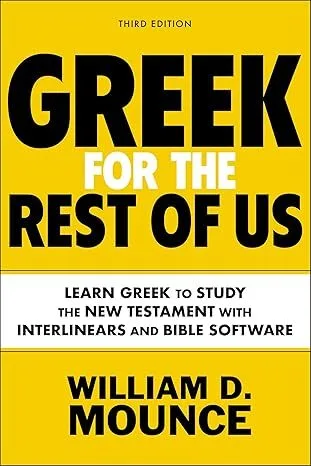Strong’s G4129: A verb meaning “to multiply, increase, or grow in number.” From πλῆθος (plēthos), “multitude.” In ancient Greek, it described various forms of increase. In New Testament usage, it appears in both positive contexts of church growth and negative contexts of increasing lawlessness.
U- Unveiling the Word

Key Information
πληθύνω

Strong’s Entry
g4129
πληθύνω embodies the concept of multiplication and growth, whether positive or negative. In the New Testament, it describes both the expansion of God’s kingdom through church growth and the increase of wickedness in end times. The early church saw this term as particularly significant in describing both spiritual multiplication and the spread of the gospel. Today, it continues to speak to the dynamic nature of spiritual influence, whether for good or evil, and challenges us to consider what we’re multiplying in our own spheres.
N – Necessary Information
- Greek Word: πληθύνω, plēthynō, /play-THOO-no/
- Detailed pronunciation: play-THOO-no (emphasis on second syllable)
- Part of Speech: Verb
Etymology:
- Root: πληθ- (plēth-) meaning “to fill”
- Suffix: -υνω (-ynō) causative verb ending
- Derived from πλῆθος (plēthos), “multitude”
D – Defining Meanings
- To multiply
- To increase
- To grow in number
For compound words: Not a compound word, but contains causative suffix -υνω indicating “to cause to become”
Translation Options:
- To multiply – Emphasizes exponential growth
- To increase – More general term for growth
- To abound – Captures sense of overflow
E – Exploring Similar Words
- αὐξάνω (auxanō) /ow-KSAN-oh/ – to grow, emphasizes natural growth
See G837 - περισσεύω (perisseuō) /per-is-SYOO-oh/ – to abound, overflow
See G4052
R – Reviewing the Word’s Morphology
Verb Features:
- Tense: Present, Future, Aorist, Perfect
- Voice: Active, Passive
- Mood: Indicative, Subjunctive, Imperative
- Person: First, Second, Third
- Number: Singular, Plural
Examples:
Present: πληθύνω (I multiply)
Future: πληθυνῶ (I will multiply)
Aorist: ἐπλήθυνα (I multiplied)
Perfect: πεπλήθυγκα (I have multiplied)
- Cross-references to noun πλῆθος and adjective πληθυντικός
S – Studying Lexicon Insights
BDAG emphasizes both numerical and qualitative increase. Thayer’s notes its use in blessing formulas. LSJ documents extensive usage in growth contexts. Vine’s highlights its appearance in both positive and negative contexts. Strong’s connects it to multiplication concepts. LEH provides Septuagint usage in fertility contexts. Moulton and Milligan cite examples from agricultural documents.
T – Tracing the Scriptures
First appearance:
“And because lawlessness will be increased, the love of many will grow cold.” Matthew 24:12
Additional References:
Acts 6:1, Acts 6:7, Acts 7:17, Acts 9:31, Acts 12:24, 2 Corinthians 9:10, Hebrews 6:14, 1 Peter 1:2
A – Analyzing Classical Usage
| Author: Work | Text |
|---|---|
| Xenophon: Economics | “The farmer’s crops multiplied beyond expectation” |
| Plato: Laws | “As the population increased, new laws became necessary” |
| Aristotle: Politics | “When wealth multiplies, so do the challenges of governing” |
N – Noteworthy Summary
πληθύνω reminds us that spiritual influence tends to multiply, whether positive or negative. While Jesus warns of increasing lawlessness, Acts shows the exponential growth of God’s kingdom. This challenges us to consider what we’re multiplying through our influence and encourages us that God’s kingdom grows despite opposition.
D – Did You Know?
- Ancient blessing formulas often used this term for offspring and prosperity.
- Early church growth statistics often employed this word.
- The term influenced mathematical language for multiplication.
Strong’s G4129: A verb describing multiplication or increase, used in both positive contexts of divine blessing and church growth, and negative contexts of increasing evil. Particularly significant in Acts for describing the church’s exponential growth.
Part of speech: Verb
Tags: multiplication, increase, growth, church growth, end times, Acts, blessing, divine increase, biblical Greek, exponential growth, spiritual influence, kingdom expansion
Note: While this entry strives for accuracy, readers engaged in critical research should verify citations and keyword occurrences in their Bible translation of choice. For Biblical citations, the F.O.G Bible project recommends Logos Bible software.
Strong's g4129




